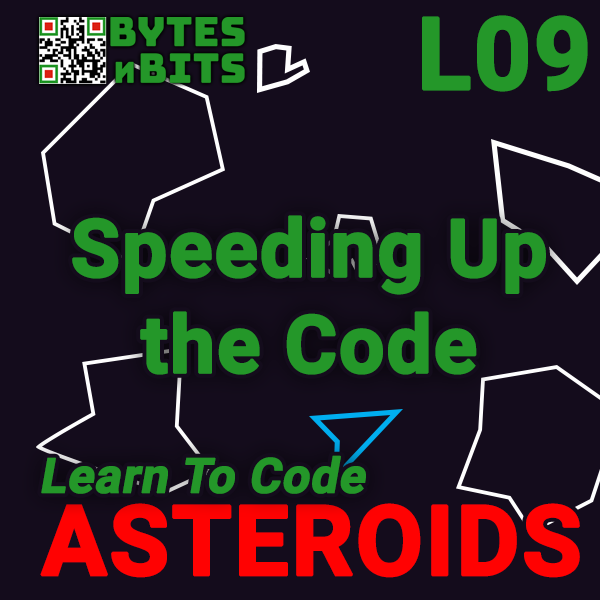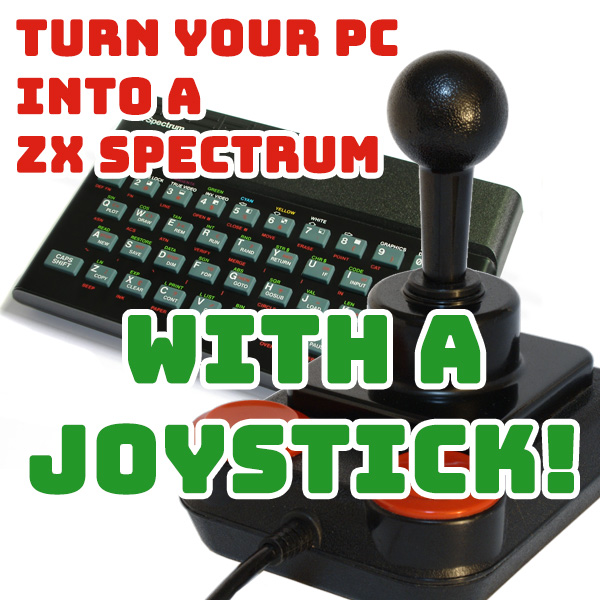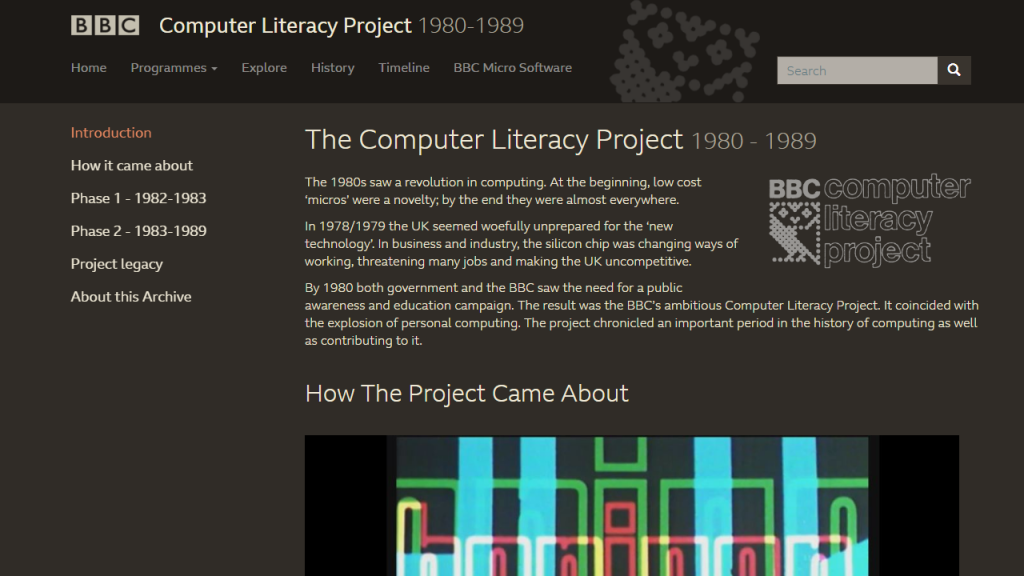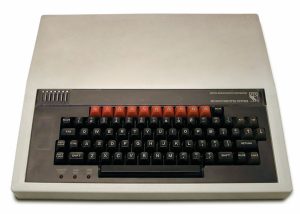
Learn to Code Asteroids – Lesson 11 – Alien Missiles Incoming
11th April 2020
Attach a Joystick to the Fuse ZX Spectrum Emulator
2nd October 2020A Bit of Computer History – The UK Computer Literacy Project
The BBC Computer Literacy Project
I recently got a comment on one of my BBC micro emulator videos. Someone had found a 1984 BBC micro robotics book and was wondering if the emulator would allow them to connect the robot to a PC and get it to work. I started to do a bit of searching on Google, trying to find the project so I could see what it needed, but instead came across a very interesting website from part of the BBC archives.

When I was growing up at the very start of the 1980s computers were just making their way into everyday usage. The idea of having a personal computer still felt like science fiction and that’s ignoring the fact that most people didn’t know what they were let alone what they could do with them.
This lack of computer knowledge was not just within the general public. UK businesses and industry hadn’t got behind this digital revolution and were starting to see other countries overtake them through the use of computers and robotics. This prompted the government to team up with the BBC to launch the Computer Literacy Project.
The project, which officially launched in March 1982, was a bold and exciting multimedia experience designed to inform and educate the UK population in these new technologies. Television programmes, books, educational courses and even the project’s very own computer system, the BBC microcomputer, were designed, built and delivered over the following 7 to 8 years.

For me personally everything came together at exactly the right time. I was 13 years old and I persuaded my parents to buy me one of the brand-new Sinclair ZX-81 computers for my birthday. This 1K RAM computer (yes that’s 1 kilobyte not megabyte or gigabyte!) running at 3.5 MHz seemed amazingly futuristic. And being able to type in your own programs (at the time that was the only option) to make little black blobs move around the screen was literally mind blowing.
This perfectly coincided with the BBC broadcasting its first series of The Computer Program.
And this is why I was so pleased to come across this BBC archive website. Every episode of every series in the Computer Literacy Project is here, free for everyone to view. It also has lots of supplementary information about the project, the people and the technology. You can even use a browser-based emulator to run practically all the software featured in the television programmes.
So if like me you lived through the 80s and 90s and grew up with this emerging technology you’re in for a real dose of nostalgia. If you’ve only known a world full of computers you’ll get a fantastic peak into the history of computing as it reveals itself over the course of the project. Don’t forget that this was really happening while these programs were being made and broadcast.
So make your way over to https://clp.bbcrewind.co.uk/, sit back and enjoy the show.
Highlights for Me
Episode 6 of The Computer Program – Moving Pictures
https://clp.bbcrewind.co.uk/2c35aa959ff030f14f9033794a7c52b6
Episode 9 of Making the Most of the Micro – Moving Pictures
https://clp.bbcrewind.co.uk/f8bd29a485040d1bb8466d6efc6e5053
These two episodes introduce the idea of computer graphics. When compared to our modern systems they look incredibly basic. But at the time this was cutting edge technology. All of the techniques and technology you see developing in these episodes forms the basis of all of our games, simulations and CGI systems we take so much for granted these days.
Computers and Control
https://clp.bbcrewind.co.uk/4d70db67f1bb222cf3d2a515636c19be
Connecting computers to the real world has always fascinated me. This series helped inspire me to follow a career in control systems engineering, were computers, electronics and machines come together to solve a wide range of real-world problems. Many of the techniques introduced during the series are still incredibly relevant to today’s robotics. Re-watching these programmes really makes you want to pick up your soldering iron, grab an Arduino and make something fun – keep a lookout for some electronic projects coming to the YouTube channel!
And don’t forget to check out the online software.
https://clp.bbcrewind.co.uk/beeb
Have a look at this 3D animation software. Completely written in BBC BASIC but implementing a full hidden face removal by over painting algorithm. Why not have a go at rewriting this in TIC-80?
Osbourne Book – How to Make Computer Controlled Robots
https://drive.google.com/file/d/0Bxv0SsvibDMTZ2tQMmpyOWtsRFk/view




